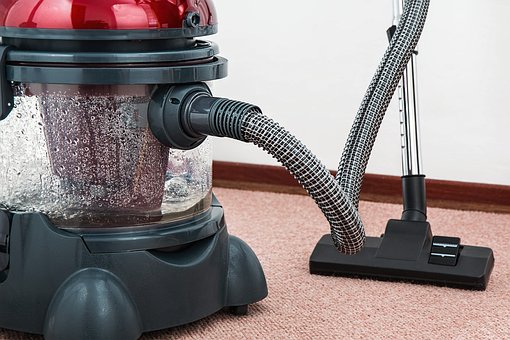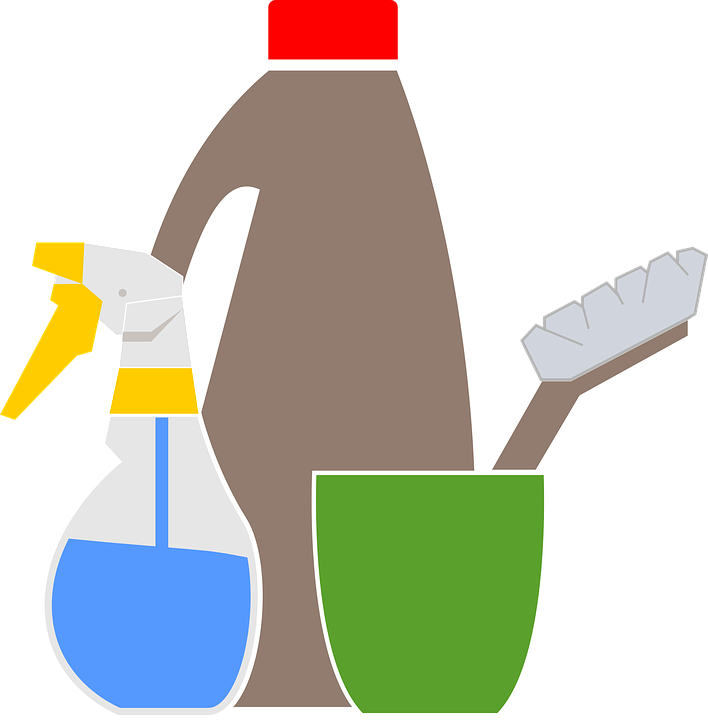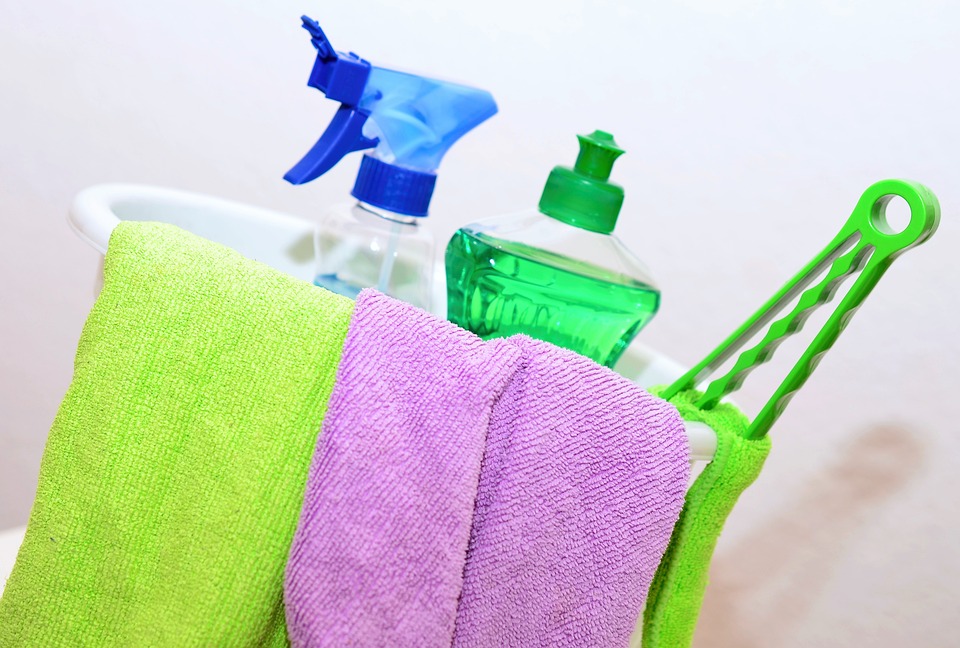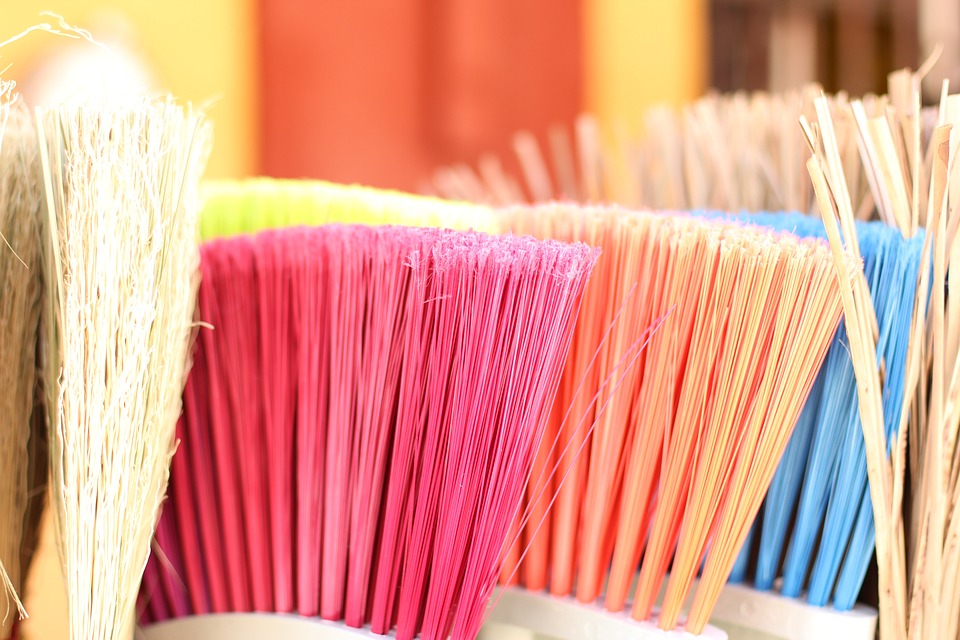Ways To Use Commercial Cleaning Supplies
Liquid cleaners are a suspension of solid abrasive particles in a thickened liquid matrix. They contain more surfactant and softer abrasives than are found in some powdered cleaners. As a result, their abrasive action is usually gentler than powders. Scouring pads, like powdered cleaners, are products with a long history of use.
For chemical cleaning and as a polishing aid, the steel wool pad may be filled with a cleaning mixture whose principal ingredient is soap. Particularly on metal surfaces, the soap and metal pad can provide effective cleaning and a pleasing shine. On continued use, the cleaning mixture is used up and the pad begins to corrode.
These pads are not impregnated with a cleaning mixture and rely on mechanical action alone. Other scouring pads consist of a cellulose sponge with a polyurethane backing. These pads significantly reduce the scratching of surfaces. NON-ABRASIVE CLEANERS Non-abrasive, all-purpose cleaners are marketed in different forms. They are offered as powders that can be dissolved to the proper strength and as liquids that can be diluted or used full strength.
And How To Avoid Problems with Commercial Cleaning Supplies
Liquids may also be used full strength. The major ingredients in non-abrasive cleaners are surfactants and builders. A surfactant’s presence is noticeable by the appearance of foam, particularly in diluted water solutions. All-purpose cleaners are generally formulated to produce only a moderate amount of foam, which makes rinsing easier. Since most all-purpose cleaners work best in alkaline conditions, they often contain an alkaline buffer salt, such as sodium carbonate.
These cleaners can also contain other ingredients, such as ammonia, pine oil and organic solvents like ethanol or isopropanol. Spray cleaners are designed for use on smaller washable areas. Soiled walls around switch plates, chrome fixtures, appliances and cooktops are examples. Like the dilutable products, sprays are formulated with surfactants and low levels of builders; most contain an organic solvent.

Specialty cleaning products have a narrower spectrum of uses than all-purpose products. They are designed for specific surfaces, such as glass, bathroom surfaces, ovens, drains, metal, floors, carpets, furniture and upholstery, and the soils that usually collect on these surfaces. By concentrating on specific conditions, specialty products can deliver optimum performance and convenience.
Power Up Your Commercial Cleaning Supplies
Sodium hypochlorite is similarly effective on stains found on hard surfaces. In addition, it can be used as a disinfectant to kill bacteria, viruses and fungi, including moulds and mildew. Disinfectants and Disinfectant Cleaners Disinfectants contain antimicrobial agents, such as pine oil, sodium hypochlorite, quaternary ammonium compounds or phenols, which kill bacteria and viruses on surfaces.
Therefore, they are effective at cleaning surfaces as well as killing germs. Label instructions must be followed to assure the surface is disinfected. Drain Openers Today, drain opening products fall into two categories. The newer category includes maintenance products or “build-up removers”; the second category includes traditional drain openers.Build-up removers are liquids formulated to prevent the grease and soap scum build-up which causes clogged drains.
The enzymes break down and digest organic materials, such as grease, that accumulate in pipes. Build-up removers can be used on an ongoing basis to keep drains free flowing.For opening clogged drains, a traditional drain opener may be required. Drain openers are chemically strong liquid or crystal products formulated for this demanding job.
Things You Didn't Know About Commercial Cleaning Supplies
Sodium hydroxide is often used to generate heat to melt fat and break it down to simpler substances that can be rinsed away. Some products also contain agents to produce gas which provides agitation in the drain, a further help in opening drains.Clogged bathroom drains are often caused by hair, soap particles, toothpaste or combinations of these materials.
Glass Cleaners Glass cleaners are designed to clean glass surfaces without streaking or leaving any residual soil or product. Liquid glass cleaners are available in bottles with trigger sprays or in aerosol containers.The products contain surfactants to loosen soil, solvents to dissolve oily soils, and water as the medium to carry surfactants and solvents.
Alkaline builders, such as ammonia, are more effective on acidic soils like body oils or cooking grease. Acetic acid (vinegar) provides better performance on alkaline soils like mineral salts.The spraying arrangement, a pump or a pressurized aerosol container, helps in applying the product across the surface to be cleaned, assures uniform distribution and minimizes product waste.Opaque creamy glass cleaners contain surfactants and solvents.
The Secret of Effective Commercial Cleaning Supplies
Any remaining dried solid shows areas that need to be wiped. Glass and Multi-surface Cleaners These function as effective cleaners on a variety of kitchen surfaces and have the additional feature of being non-streaking on glass. The unique combination of surfactants, solvents, mild alkalis and builders provides the non-streaking characteristic.
When hard water evaporates, a mineral deposit is left behind which can build up over time. Hard water mineral removers are formulated to remove such deposits.These products come as powders or as liquids with push-pull tops or trigger sprays. They contain acids, such as citric, oxalic, sulphamic or hydroxyacetic acid, to dissolve minerals, limescale and rust.
Their regular use helps prevent mineral deposit build-up. Metal Cleaners and Polishes Metal presents a special cleaning problem, tarnish (the oxidation of metal), which is the principal soil to be removed. Metal cleaning products are sold as pastes, thick opaque liquids or clear liquids which may hold a fine abrasive in suspension.Surface impurities on most metals are removed more easily in an acidic medium.
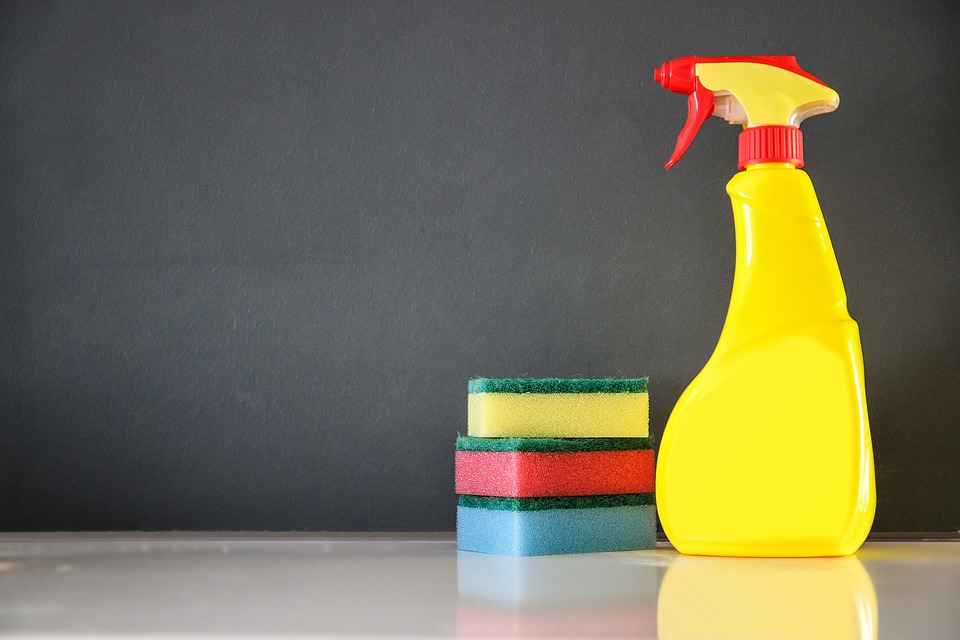
Evidence That Commercial Cleaning Supplies Truly Works
To aid in mechanical removal of tarnish and soil and contribute to metallic luster, a very mild abrasive is present as a polishing/buffering agent. Clay-like materials, such as kaopolite or finely divided hydrous silica, are common mild abrasives used.Metal cleaning formulations may also contain surfactants for ease of spreading the product as well as an aid in soil removal.
Oven Cleaners These generally are liquids that are packaged in aerosol containers. Charred grease and other food components make up the soils deposited on oven walls. For most oven cleaners designed to work in a cold oven, strong ingredients are necessary to remove burned-on soils. A strong alkali, like sodium hydroxide (lye), is the principal agent in such oven cleaning products.
Surfactant is also present to help penetrate soil and wet the surface.Oven cleaners are formulated to be as thick as possible to allow the product to cling to the soiled, greasy, vertical oven surfaces. Shower Cleaners Daily shower cleaners are formulated to prevent build up of soap scum, mildew stains and hard water deposits without rinsing, wiping or scrubbing, and without leaving a dull residue or streaks.Daily shower cleaners are available as liquids in trigger spray bottles.


